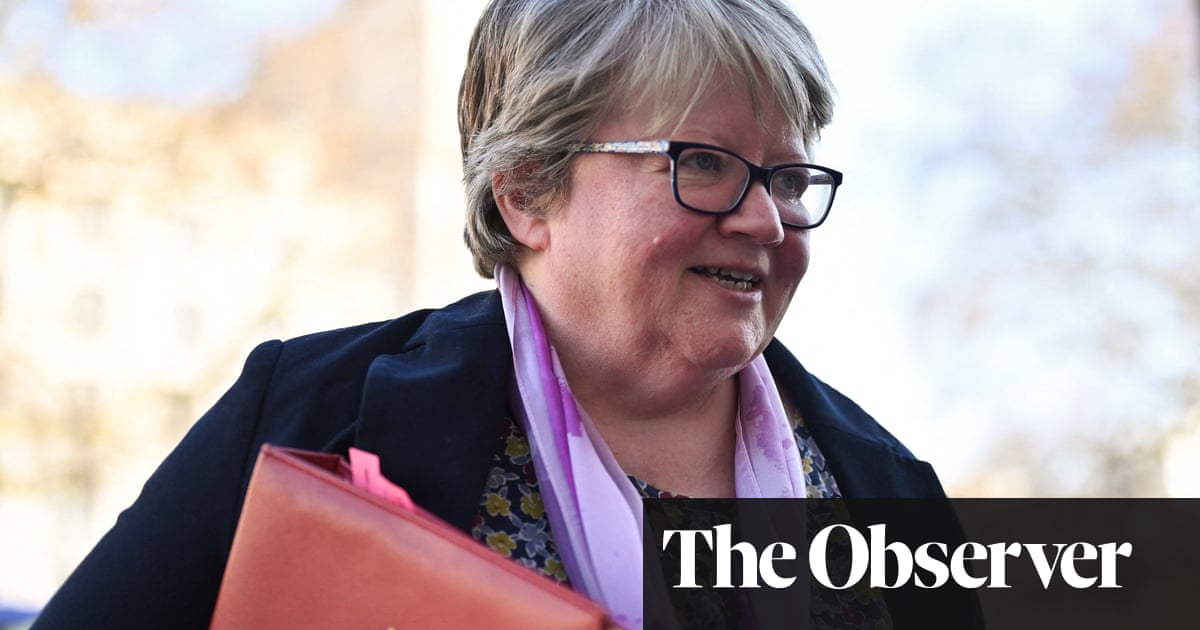
Ministers are risking a fresh backlash over social care by unveiling long awaited proposals that will offer no new funding to help crisis-hit care providers through winter, the Guardian understands.
The care minister, Gillian Keegan, is expected to unveil the white paper to parliament on Wednesday in what has been billed as a key part of delivering on Boris Johnson’s 2019 promise to “fix the crisis in social care once and for all”.
The package is understood to include proposals to invest some of the £5.4bn that will be raised by the new health and social care tax. This will include several hundred million pounds to boost the development of “extra care” facilities, also known as “assisted living”, which allow elderly people to straddle independent living and nursing care.
It is also expected to invest more than £100m in improving the technology used in care settings, ranging from digitising resident records to devices that track falls and enable greater independence.
Both initiatives are likely to be welcomed as important developments in making social care fit for purpose, potentially boosting the independence of people who rely on care and helping them stay at home for longer.
But sources familiar with the policy said there appeared to be nothing to boost care worker pay in the short term amid existing crippling staff shortages exacerbated by the pandemic.
The strategy paper comes amid rising fears among care bosses about how they will cope if the Omicron variant increases the strain on services. The sources said there was expected to be no announcement of funds to deal with a waiting list for care assessments and packages which council chiefs warned this week has risen to 400,000 people in England.
On Monday, Stephen Chandler, the president of the Association of Directors of Adult Social Services, warned that social care services across England were “rapidly deteriorating” and “red lights are flashing right across our dashboard”.
The government white paper is expected to focus on how to spend £1.7bn that will be left over after a new £86,000 cap on care costs is paid for – a policy that was watered down this month, triggering a row.
Some £500m from the £1.7bn pot, available in April 2022 for three years, has already been allocated to staff training and career development. As well as several hundred million pounds to be invested into new types of care homes and digital technology, there will be funding to boost respite care for families and for councils to help them administrate the cap on care costs.
But one person who has seen the long-awaited policy said it lacked ambition and moved at too slow a pace to be considered a “fix” for social care. Another said there was nothing on boosting pay in the short term for care staff, whose average wage is £9.01 an hour in the independent sector.
A government source insisted ministers have already pledged £162m for councils to distribute to care providers to help retain staff this winter alongside a TV ad campaign called “Made With Love” to find new recruits. They stressed that more help may yet be available to help the sector through winter.
Care providers pleaded on Tuesday for more urgent help, with many having to refuse to deliver new care packages because of staff shortages, causing problems for NHS managers left unable to discharge patients.
Mike Padgham, the chair of the Independent Care Group, an industry organisation, said: “We were already in the eye of a perfect storm, with exhausted and burnt-out carers battling to provide the best care they can as winter sets in, the impact of ‘no jab, no job’ [which requires care workers to be double vaccinated] and an inability to recruit from overseas because of Brexit.
“Now we have the new Omicron variant on top, which means we have to be ever more vigilant. We must have some support if we are going to get through the next few months.”
Last week, the health secretary, Sajid Javid, told council leaders that reforming social care boiled down to three questions: “How we pay for it, how do we staff it, how do we support an ageing population?”
“One of the most challenging questions of our time,” he said. “So challenging that successive governments have ducked it. But this government is determined to rise to it.”
A Department of Health and Social Care spokesperson said: “We have already confirmed further support including the extension of free PPE, £388m more to support infection prevention control, testing and vaccination uptake in adult social care settings. This takes total funding for adult social care to £2.5bn over the pandemic.”












